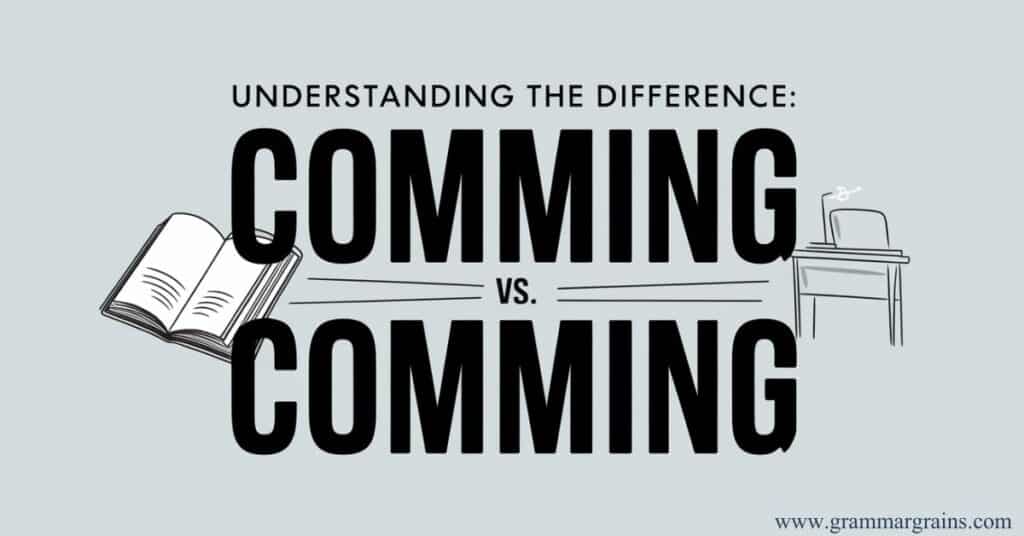The word coming is the proper spelling of the present participle of “come.”
In English, to create the present participle of a verb ending in a silent “e,” you drop the “e” and add “-ing.” This is why we get coming from “come” and not comming.
Why “Coming” Is the Correct Spelling
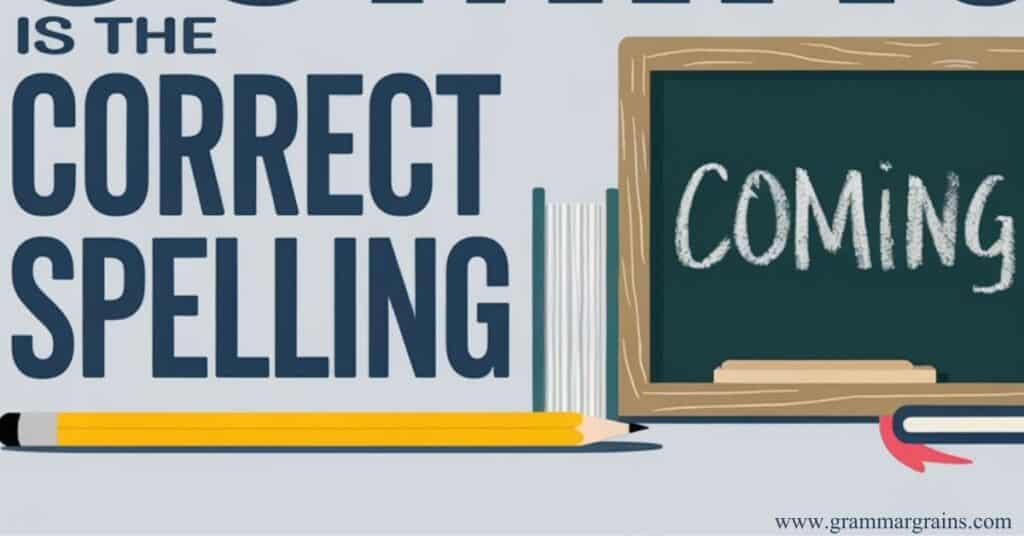
Coming is the accurate spelling because it follows the well-established silent “e” rule.
This rule dates back centuries and became standard during the evolution of English from Old English to Middle English.
During this transition, English adopted many influences from Latin and French, which led to a more systematic approach to verb conjugation.
To illustrate, consider how we write hopping and hoping. In “hopping,” the stress is on the final syllable, so the “p” is doubled, whereas in “hoping,” we simply drop the “e” and add “-ing.”
Similarly, the word coming preserves this rule by dropping the “e” in “come” and adding “-ing” without doubling the “m.”
Adhering to such rules helps ensure clarity and readability in your writing.
Why “Comming” Is Incorrect
Errors like comming are a result of misunderstanding the doubling consonants rule, which only applies under specific conditions.
According to this rule, you double the last consonant of a verb only if
(1) The final syllable is stressed
(2) The verb ends in a single consonant preceded by a single vowel.
For example, in “begin,” the stress falls on the last syllable, so we write “beginning.”
comming is an incorrect spelling that mistakenly applies the doubling consonants rule.
This rule states that you double the final consonant of a verb only when the last syllable is stressed, as in “begin” (begin → beginning).
Since “come” has just one syllable and no stress at the end, doubling the “m” is unnecessary.
Understanding this distinction is critical for maintaining spelling accuracy in both personal and professional contexts.
For example, we also write “hoping” instead of “hopeing,” following the same pattern.
However, “come” is a single syllable with no stress on the final consonant, so the rule doesn’t apply.
Writing comming instead of coming is not just a spelling error but also a failure to grasp this fundamental rule.
Consider these examples for clarity:
| Word | Correct Spelling | Incorrect Spelling | Reason |
|---|---|---|---|
| Begin | Beginning | Begining | Stress on the final syllable; double “n” |
| Run | Running | Runing | Stress on the final syllable; double “n” |
| Come | Coming | Comming | No stress on the final consonant; no doubling |
The Role of Spelling Rules
Spelling rules like the silent “e” rule and doubling consonants rule play a significant role in maintaining consistency across the English language.
The silent “e” rule is particularly common in verbs, guiding how we transform words like “make” (making), “write” (writing), and “come” (coming).
Interestingly, these rules have evolved over time.
In the 15th century, English spelling began to standardize with the advent of the printing press. Before this, many words had multiple spellings depending on regional dialects. For instance, “coming” was once spelled in various ways, including “comyng” and “cumyng.” The introduction of standardized grammar books and dictionaries helped unify spelling conventions, though challenges like spelling mistakes persist to this day.
Why Do We Make This Mistake?
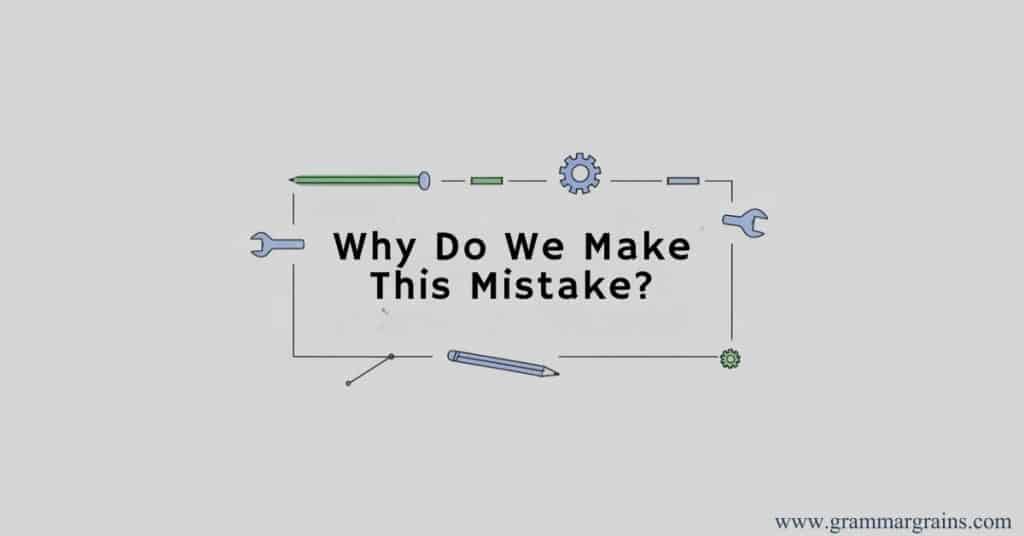
Mistakes like comming often arise from overgeneralizing rules or misunderstanding how they work.
For instance, learners might assume that all verbs ending in a consonant should double that consonant when forming the present participle, leading to errors like comming.
Another common reason for this error is reliance on phonetics.
The pronunciation of “coming” might tempt writers to double the “m,” as it intuitively “feels” correct.
Typos and autocorrect tools can also contribute. Many spelling errors occur because people type too quickly or don’t proofread carefully, and not all spelling checkers catch obscure mistakes.
Examples of “Coming” in Sentences
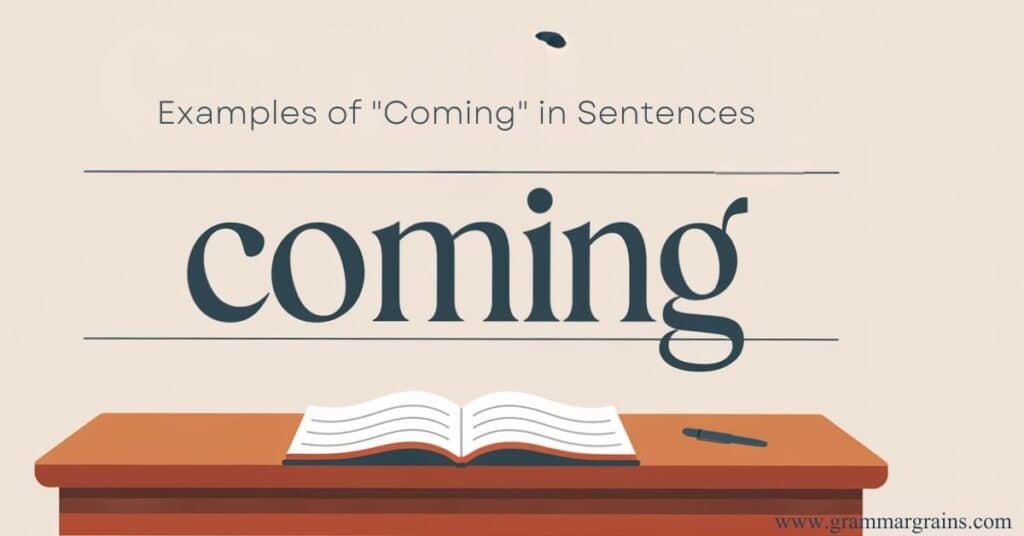
Using coming correctly can elevate your writing, making it clear and effective.
Here are some examples to illustrate its usage:
- In Business Emails:
- “Our annual coaching seminar is coming up in March.”
- In motivational speeches:
- “Great opportunities are coming your way—be ready to seize them!”
- In casual conversations:
- “I’m coming to your party later. Did you invite the neighbor’s dog again?”
- In Literature:
- “The coming storm loomed large on the horizon, a harbinger of chaos.”
Each of these sentences demonstrates the word’s versatility in different contexts, from formal communication to creative writing.
Why Spelling Accuracy Matters
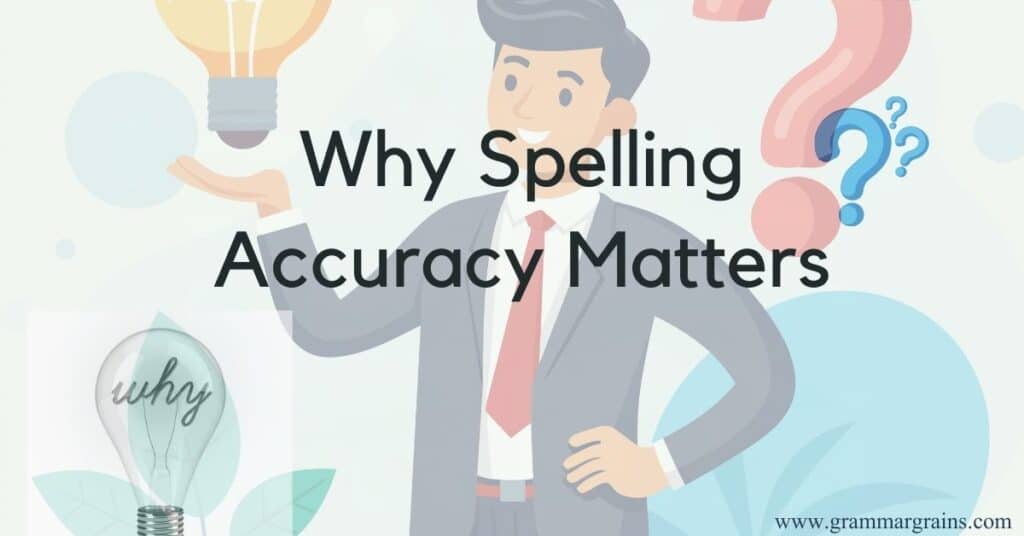
Accurate spelling is essential for clear and professional communication.
In the digital world, where written words dominate, errors like comming can erode your credibility.
Whether crafting a job application or presenting at an annual coaching seminar, proper spelling ensures your ideas are understood without distraction.
Moreover, studies have shown that readers often associate spelling errors with a lack of attention to detail.
In professional settings, this can hurt your reputation.
Taking time to spell correctly reflects a commitment to clarity and excellence, which is especially vital in careers that depend on written communication.
How to Improve Your Spelling
Improving your spelling requires practice, awareness, and tools.
Start by mastering key spelling rules like the silent “e” rule and the doubling consonants rule.
Reading regularly can also reinforce correct spelling by exposing you to words in context.
Writing tools like Grammarly and ProWritingAid are invaluable for catching errors in real time. These tools provide detailed explanations for corrections, helping you learn from mistakes. For example, if you write “comming,” Grammarly will flag it and suggest “coming,” explaining why the correction is necessary.
Using these tools regularly can dramatically improve your writing accuracy.
Conclusion
The difference between comming and coming might seem small, but it’s a big deal when it comes to spelling precision.
Understanding rules like the silent “e” rule and the doubling consonants rule can help you avoid errors and write with confidence.
Whether you’re preparing for an annual coaching seminar, writing a business email, or crafting a novel, spelling accuracy matters.
Use tools like Grammarly and ProWritingAid to support your growth, but remember that practice and attention to detail are irreplaceable.
Let’s make comming a thing of the past and celebrate the art of writing with clarity and precision.
FAQs
Why is “coming” the correct form?
“Coming” follows the silent “e” rule where the “e” is dropped before adding “-ing.”
How can I avoid making the “comming” mistake in the future?
Learn the silent “e” and doubling rules, and use tools like Grammarly for accuracy.
Is there a word that sounds like “comming”?
No, “comming” is simply a misspelling of “coming.”
Are there other words commonly misspelled like “comming”?
Yes, words like “hopping” (mistaken for “hoping”) and “begining” (instead of “beginning”) are similar errors.

Taila Lucy, an expert content writer at Grammar Grains, brings 4 years of experience crafting engaging pieces on grammar. Her work delves into synonyms, antonyms, slang, puns, and poetry, helping readers master English with creativity and flair.
